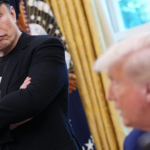“We had these results a year ago, and they were so large that we said, ‘This is not real,’” Ed deHaan, a professor of accounting at Stanford University, told Fortune.
“I don’t think sitting around, crunching Excel spreadsheets is a job that will exist in a material sense in five years,” said deHaan, managing editor of the Journal of Accounting and Economics.
Instead of hiring 10 skilled employees to do that work, deHaan said, the AI could go through the process in a matter of hours, finding what he called “information hiding in plain sight.”
There are some important caveats, though. For one, the AI didn’t compete against other funds that simultaneously had access to the same technology.
“As soon as everybody starts using it,” deHaan said, “the game changes.”
The study is a thought experiment, he emphasized, that uses the AI’s ability as a proxy for the earnings human managers “left on the table” because they couldn’t afford the additional manpower or technological investments that might have replicated it.
Given the average human-managed fund charged its investors fees of $3.6 million per quarter, the study suggests a fund would have needed to at least quintuple its fees to match the bot’s returns. The number also reflects various frictions organizations face in adopting new technology, deHaan said.
“You can’t just grab the latest AI model and chuck it into your workflow,” he said, “especially in a regulated space.”
Still, it’s critical that the study accounts for the practical and compliance constraints fund managers face, deHaan said. Many funds are restricted to only investing in large-cap names, for example. Even if those criteria don’t explicitly rule out certain opportunities, it might be inefficient for large managers to profit off the mispricing of smaller, less frequently traded stocks.
Overall, deHaan is optimistic artificial intelligence—like previous technological developments—will be a net job creator. That could include the investment world, he said, but certain types of roles are already becoming obsolete.
Stephanie Link, chief investment strategist at Hightower Advisors, is a bull on AI when it comes to investing in tech and cybersecurity companies. But she doesn’t think the technology, even as it gets better and better, will supplant her junior analysts anytime soon.
“How am I going to retire and have someone who’s younger than me replace me?” she told Fortune. “Because I think what I do is not replaceable by a computer.”
Some managers clearly have skill, deHaan said, especially given that some beat the AI created by him and his colleagues. The bot improved most portfolios by de-risking them, however, swapping positions it didn’t like with passive index funds. In fact, when the researchers fully outsourced stock picking to AI, it allocated an average of 42% of its funds to tracking indices.
Still, he always sees a place in the market for managers who are most effective at leveraging AI models.
“Or maybe it’s the clever human who thinks like a human and can ‘out-human’ the AI,” deHaan said.
“They’ll always be there,” he added, “probably just not as many.”









